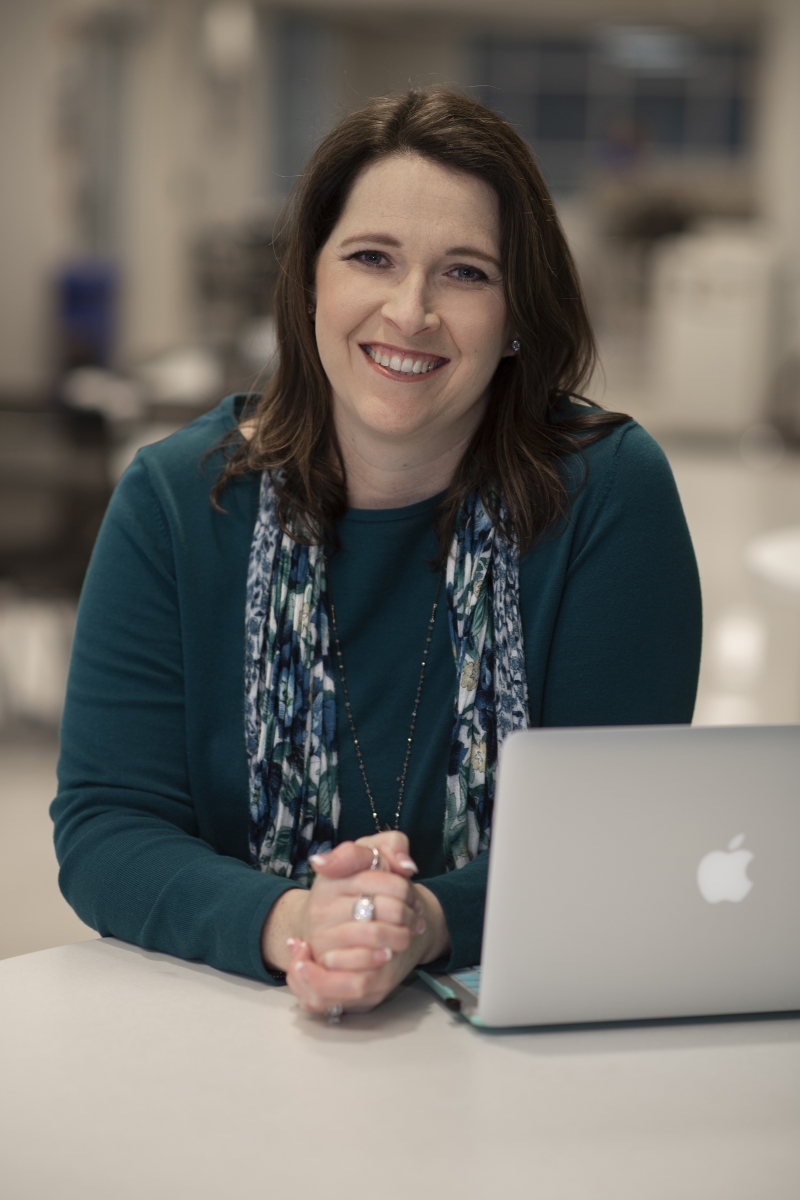 |
| Tiffany Henry oversees the Small Business Center at Southwestern Community College. |
After working with area business owners for the better part of a decade, Tiffany Henry takes their success personally.
As Director of Southwestern Community College’s Small Business Center, Henry helps local entrepreneurs develop business plans. She regularly organizes seminars to supply helpful tips. She assists in filling out loan applications, celebrates her clients’ successes and finds pathways around their roadblocks.
That’s why the economic devastation caused by COVID-19 shook Henry to her core.
“It’s like being a silent partner,” said Henry, who’s been in her current role since 2013 and assisted local businesses as a lender and financial advisor for a bank prior to joining SCC. “While we don’t have any true vested financial interest, I celebrate in their successes and hurt when they hurt. It’s hard not to take it to heart when you’ve supported, mentored and encouraged them from the beginning.”
“When things like this happen, it’s so heartbreaking,” she added. “You can’t plan for something like this. There’s no timeline. With flooding and other natural disasters, there’s a timeline to figure out when you can dust off and pick up the pieces. For this, there’s not. That’s the gut-wrenching part. I don’t have the answers for everybody.”
She did, however, know before most folks how she could best be of service.
The instant she recognized how far-reaching the pandemic’s impact would be to local businesses, she abruptly changed course.
“Tiffany really does pour her heart and soul into helping businesses flourish, and I think that’s why she probably saw the landscape shifting before most people,” said Dr. Thom Brooks, SCC’s Executive Vice President for Instruction and Student Services. “She changed the direction of her entire operation before hardly anyone else had fully absorbed how significant the impact of COVID-19 would be.”
Every seminar or workshop she’d previously planned was scrapped. If a training event was still relevant to surviving COVID-19, she transformed it to an online offering. And if it wasn’t, she replaced it with something that was focused exclusively on some aspect of helping businesses navigate the treacherous times ahead.
She also accepted call after call from long-established and newly founded business owners alike.
“It was the week of March 16, and some businesses I’d known for a long time – but who’d never reached out to me – started calling,” Henry said. “When they would call, I could feel the weight of the decisions they were being forced to make. It was heavy. I honestly didn’t know if I had the capacity to go down this journey with all of them.
“They didn’t want to lay their team off,” she continued. “They were trying to be creative in how to maintain their employees. I encouraged them to talk to the bank, talk to the landlord. I tried to provide some guidance out of the gate to help make their decisions a little easier.”
Henry’s primary advice to anyone who asked: “Communication is so critical. This whole pandemic is forcing their hands. Maybe they don’t know if they should ask the bank or their landlord for a break, but I told them they can’t wait. Don’t hide behind it. Banks know you’re having trouble, but they need to know your plan. Advocating that piece is something I spent a lot of time on. Having been in banking during the 2008 recession I knew what to anticipate from the banking side, which helped me guide my clients through those hard conversations.”
She’s hopeful that the $2.2 trillion stimulus package recently passed by the federal government will afford small businesses and their employers the relief they need to weather the current economic storm and return to business once society regains some semblance of normalcy.
She’s also hoping some of the lessons learned in this tumultuous time will help area entrepreneurs strengthen and stabilize their operations so that they are more prepared even during more prosperous seasons.
“When the dust settles a bit, I think a lot of business owners will look back on this as a time when they got innovative, creative and willing to take risks out of necessity,” Henry said. “I don’t know that they’ll need to continue taking as many risks, but I think some of the innovative approaches could benefit them for years to come.”
Every workshop, seminar and counseling session offered through SCC’s Small Business Center is free.
For more information on the services Henry provides – including a list of upcoming workshops and seminars, visit: www.southwesterncc.edu/sbc.
For confidential counseling or more information, contact her at t_henry@southwesterncc.edu.

